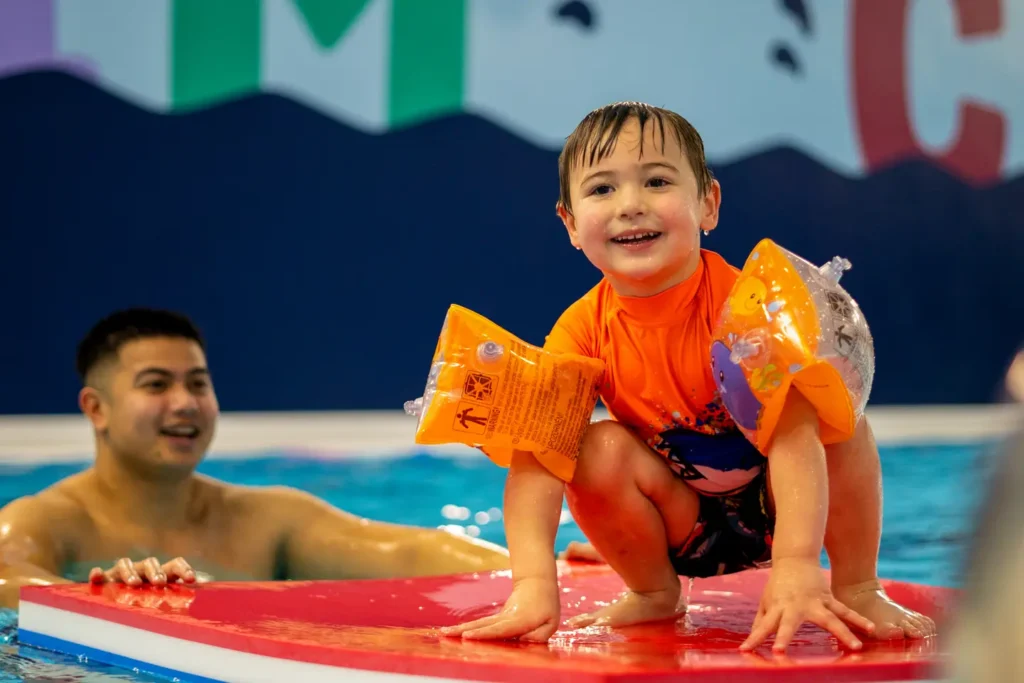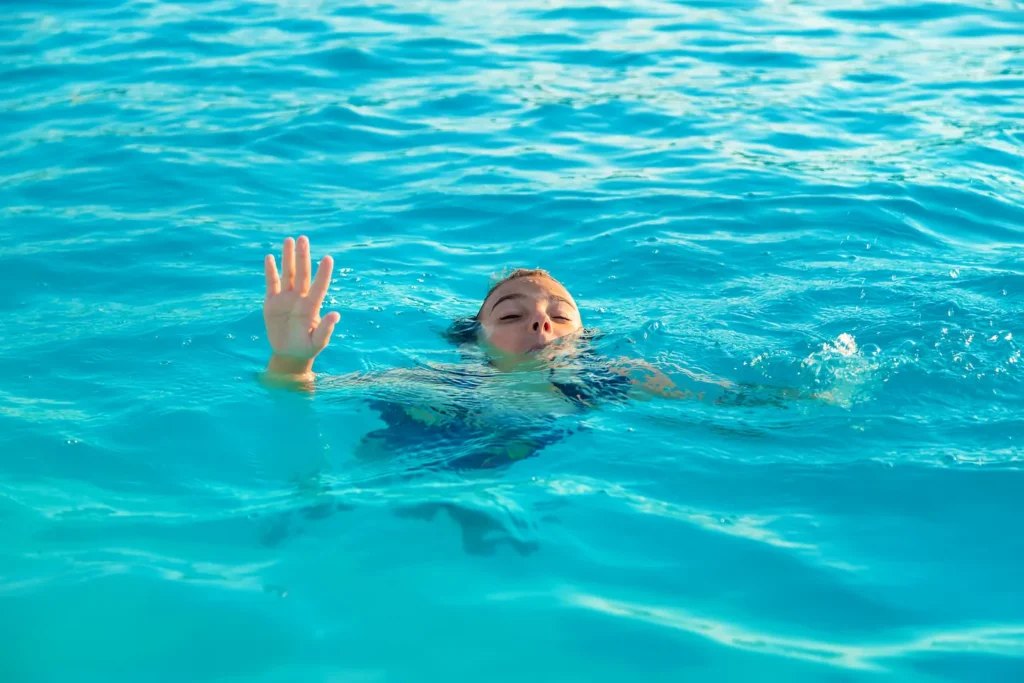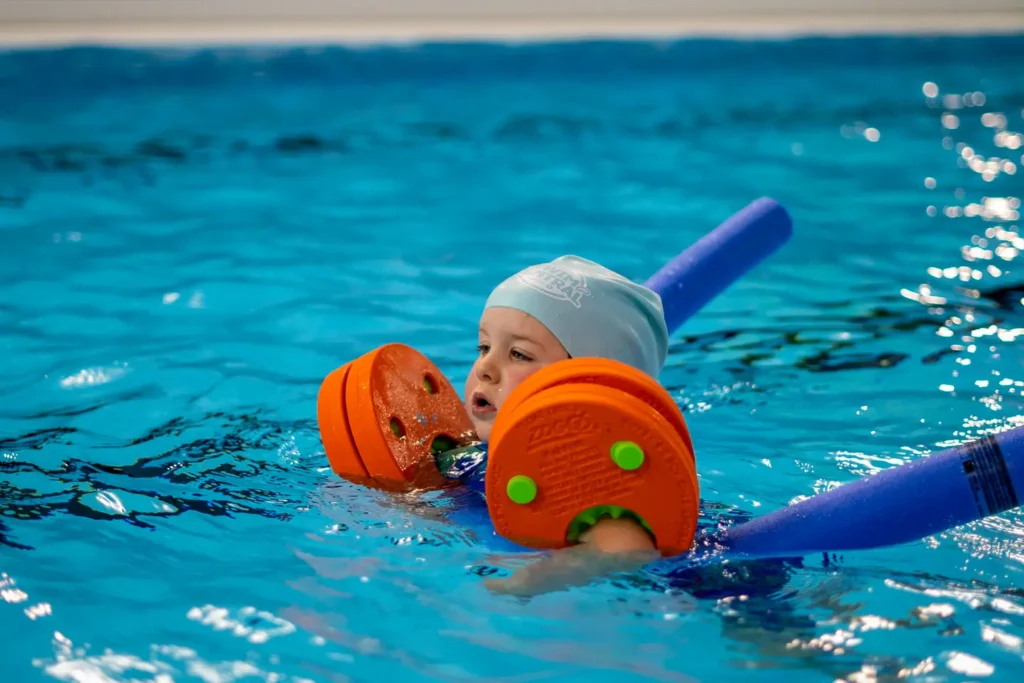Summer holidays mean family fun, pool days, and lots of time spent near the water. Nothing beats the sound of kids laughing and playing in the pool, but it’s also important to remember that water comes with certain risks. It’s natural to want your little ones safe so you can fully relax and enjoy making memories this summer. This blog post will cover 6 essential water safety tips every parent should know for a safe and unforgettable summer.
The environment matters
Whenever possible, prioritise beaches and pools with trained lifeguards. They provide an extra set of eyes and are skilled in spotting trouble. Ask lifeguards about safe swimming zones and keep kids in designated areas. Even strong swimmers can get caught in unexpected currents.
If you have a backyard pool, make sure it’s fully fenced with a self-latching, self-closing gate. Consider alarms on doors leading to the pool area as even inflatable kiddie pools pose a drowning risk for toddlers and should never be left unattended.
Use flotation aids
Flotation aids like life jackets, puddle jumpers, and armbands can be helpful for young children or inexperienced swimmers. It’s important to choose the right type for your child’s ability. Waves and currents in the ocean can easily overwhelm a child so assessing their skill level helps you determine if extra buoyancy would be beneficial, even if they don’t usually need it in the pool. Remember flotation aids should always be used with close supervision.

Establish clear safety rules
Establish clear water safety rules (no running, no swimming alone, ask permission before entering) and consistently enforce them. Make “water check-ins” a routine where everyone announces before going into the pool or ocean.
Having these shared expectations helps minimise potential mishaps and creates a more predictable environment around water. When everyone knows the rules, it’s also easier to spot early signs of trouble, like a child forgetting to “check in” or breaking a safety rule. This allows for increased supervision or redirection before a more dangerous situation can arise.
Watch for drowning signs
Most people picture drowning as someone thrashing wildly, yelling for help, and making a big splash. The reality is often much quieter and subtler, making awareness of these crucial signs even more important.
Signs in Children:
- Head Tilted Back, Mouth Open: They might be trying to keep their airway above water.
- Vertical Body: They’re likely not kicking, and might look like they are trying to climb an invisible ladder.
- Glassy or Empty Eyes: They may be unable to focus or keep their eyes open.
- Unexpected Silence: They might not have enough breath to call for help.
- Hyperventilating or Gasping: They’re struggling to breathe.

Drowning happens fast and silently. It can take mere seconds for someone to slip underwater unnoticed. Every situation is different, and not everyone will show all the typical signs. If something seems off, don’t hesitate! Trust your instincts and get help immediately. Time is of the essence
Supervision is key
We all know how fast kids can move, especially when they’re having fun. That’s why constant, focused supervision is the number one rule around water. Grabbing a forgotten towel, adjusting a beach umbrella, or even just searching through a bag can shift your attention away from the water for a few moments. – but those few seconds can make all the difference.
At the beach, choose a spot between the lifeguard flags, and never turn your back on the ocean. Ideally, an adult should be within arm’s reach of little ones in the water at all times. If you have several kids, team up with another adult for tag-team supervision.
Even a child who seems confident in the water can get into trouble quickly. A strong wave, an unexpected tumble, or simply getting tired can turn a fun moment dangerous. Active supervision means your eyes are always on your kids when they’re in or near the water.
Teach your kids to swim!
Above all, swim lessons are the best investment for your child’s lifelong water safety. Enroll your little one in age-appropriate lessons to build fundamental water skills and confidence. This empowers them with the knowledge and ability to help themselves in an unexpected situation. For parents, knowing your child has these skills provides invaluable peace of mind and allows you to truly relax and make memories during those long summer days.

At Swim Central, we understand the importance of creating a safe, welcoming environment for children to learn to swim. Our expert instructors follow the guidelines set by Swim England, ensuring a structured and effective approach to teaching swimming. We prioritise fun, engaging lessons that build confidence and help kids discover the joy of the water!
Learning to swim isn’t just for kids! We offer adult swim lessons for those who want to become water-ready. When the whole family has water safety skills, everyone can enjoy pool days, beach trips, and water-based activities with less worry and more shared fun. Book your lessons before summer hits, and get the whole family ready for a safe, splash-tastic season!

